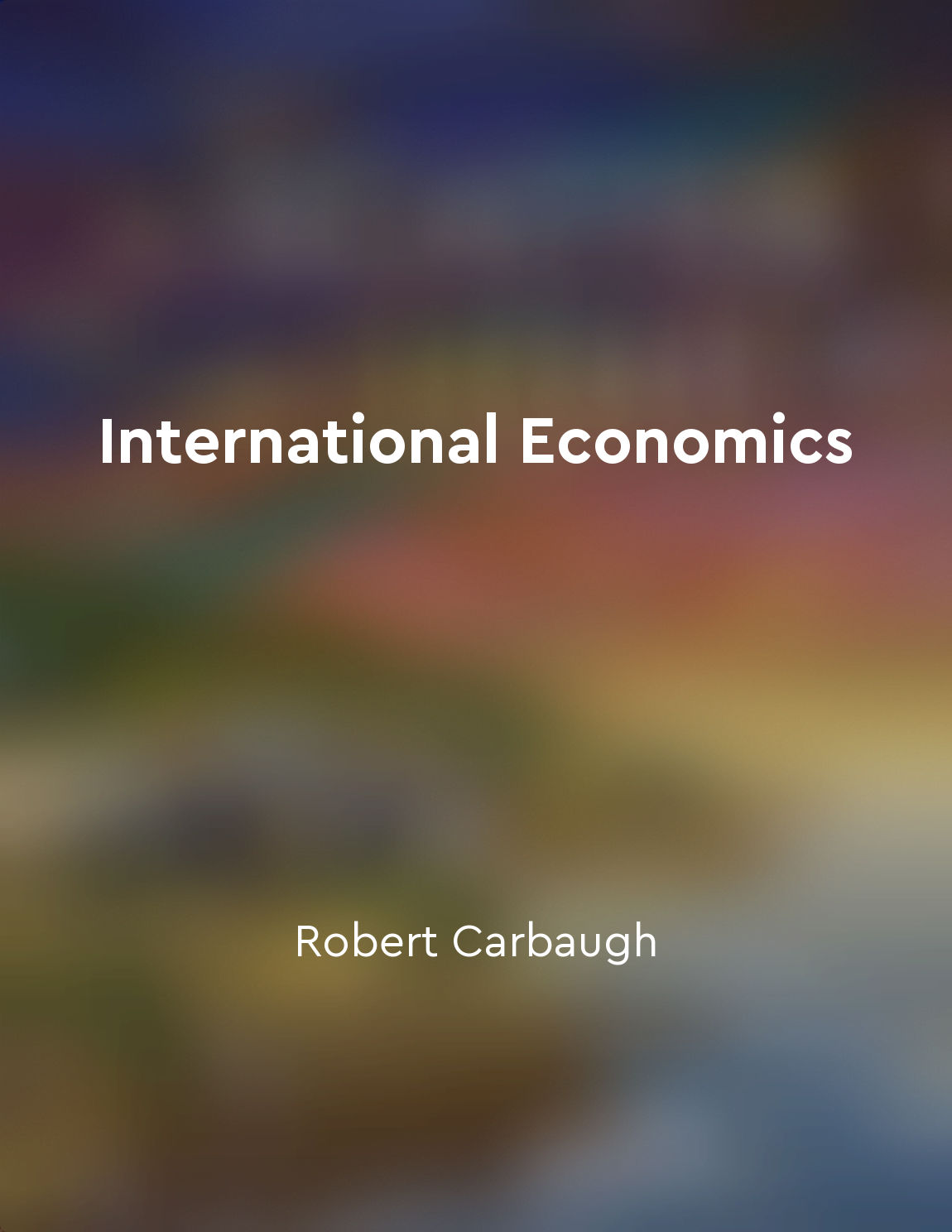Financial intermediation facilitates efficient allocation of capital from "summary" of The Economics of Money, Banking and Financial Markets, eBook, Global Edition by Frederic S. Mishkin
Financial intermediation plays a crucial role in the economy by connecting savers and borrowers. When individuals have excess funds that they want to invest, they can deposit their money in financial institutions such as banks. These institutions then lend out these funds to businesses and individuals who need capital for investment or consumption purposes. In this way, financial intermediaries help to channel funds from those who have a surplus to those who have a deficit, facilitating the efficient allocation of capital in the economy. Without financial intermediaries, the process of transferring funds from savers to borrowers would be much more complex and inefficient. Savers would have to search for borrowers on their own, evaluate the creditworthiness of potential borrowers, and monitor the performance of their investments. On the other hand, borrowers would have a hard time accessing the funds they need for their projects or purchases. Financial intermediaries simplify this process by pooling funds from many savers and making loans to a diverse set of borrowers, thus spreading risk and reducing transaction costs. Moreover, financial intermediaries play a crucial role in screening and monitoring borrowers. By evaluating the creditworthiness of potential borrowers and monitoring their performance over time, financial institutions help to reduce the information asymmetry between savers and borrowers. This, in turn, lowers the risk of lending and allows funds to flow to the most productive and efficient investment opportunities. As a result, financial intermediation helps to promote economic growth and development by ensuring that capital is allocated to its most productive uses.- Financial intermediation is essential for the efficient functioning of the economy. By connecting savers and borrowers, pooling funds, reducing transaction costs, and screening and monitoring borrowers, financial intermediaries play a critical role in facilitating the efficient allocation of capital. Through these activities, financial intermediaries contribute to economic growth, development, and prosperity.
Similar Posts

Environmental factors affect business sustainability
Business sustainability is a crucial aspect that all companies need to consider in order to thrive in the long term. One key fa...
Investment plays a crucial role in fostering growth
Investment is the engine that drives economic growth. It is through investment that new capital is created, businesses expand, ...
Share your wealth through charitable giving
When you have acquired more than enough for yourself, you must consider sharing your wealth with those who are in need. Charita...
Harmonization of trade laws is essential for global commerce
The harmonization of trade laws is a critical factor for the smooth functioning of global commerce. In today's interconnected w...

The time value of money matters
The time value of money is a fundamental concept in finance that is essential for understanding the impact of time on the value...

Corporate greed outpaces social responsibility
The insatiable appetite for profits within the corporate world has led to a disregard for societal well-being. Companies are dr...
Bitcoin is a decentralized currency that is not controlled by any central authority
Bitcoin's decentralized nature is a key feature that sets it apart from traditional currencies. Unlike fiat currencies that are...

Trade deficits can impact a country's economy
A trade deficit occurs when a country imports more goods and services than it exports. This imbalance can have significant cons...
In the short run, output deviates from potential output
In the short run, the level of output in an economy may not always align with its potential output. Potential output refers to ...
The international monetary system has evolved over time
The evolution of the international monetary system can be traced back to the early gold standard, where currencies were pegged ...

